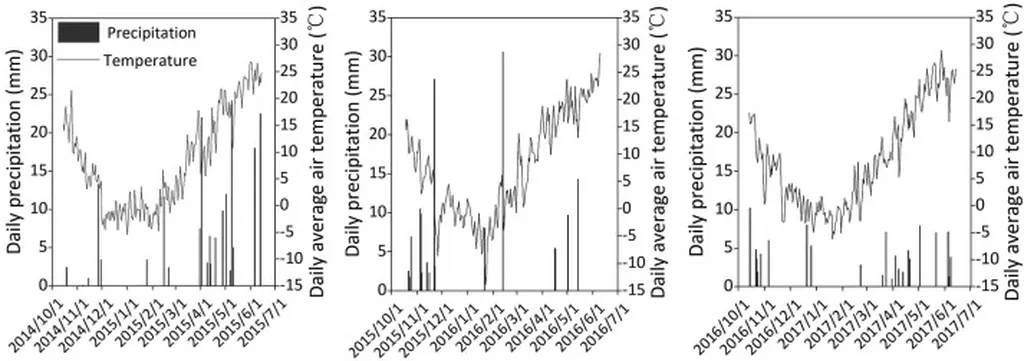In the heart of China’s Hebei province, a groundbreaking study led by Dr. Mengjing Zheng from the Institute of Cereal and Oil Crops is revolutionizing the way we think about winter wheat cultivation. The research, published in the journal ‘Plants’ (translated as ‘植物’ in English), explores the transformative potential of micro-sprinkling fertigation (MSF), a novel irrigation and fertilization technique, on wheat grain yield and nitrogen use efficiency.
The study, conducted over two growing seasons, compared conventional irrigation and fertilization (CIF) with MSF across four nitrogen application rates. The results were striking. “We found that MSF significantly increased grain yield and nitrogen use efficiency, particularly at nitrogen application rates of 180 and 240 kg per hectare,” Dr. Zheng explained. The increase in yield was driven by a higher number of grains and a greater thousand-grain weight, attributed to an enhanced net photosynthesis rate during the grain-filling stage.
One of the most compelling findings was the improved spatial coordination of roots, water, and nitrogen in the soil. Using a 15N isotopic tracer, the researchers discovered that nitrogen was concentrated in the top 30 cm of soil under MSF, aligning perfectly with the distribution of roots and water. This optimization reduced redundant tillering and improved nitrogen use efficiency.
The implications for the agricultural sector are profound. As the world grapples with the challenges of sustainable food production, MSF offers a promising solution to enhance crop productivity while minimizing resource waste. “This technique not only boosts yield but also promotes more efficient use of water and nitrogen, which are critical resources in agriculture,” Dr. Zheng noted.
The study’s findings could reshape future agricultural practices, particularly in regions where water and nitrogen resources are scarce. By adopting MSF, farmers can achieve higher yields with lower input costs, ultimately benefiting both the environment and their bottom line.
As the global population continues to grow, the demand for sustainable and efficient agricultural practices will only increase. Dr. Zheng’s research provides a crucial step forward in meeting these demands, offering a glimpse into the future of smart, resource-efficient farming.

